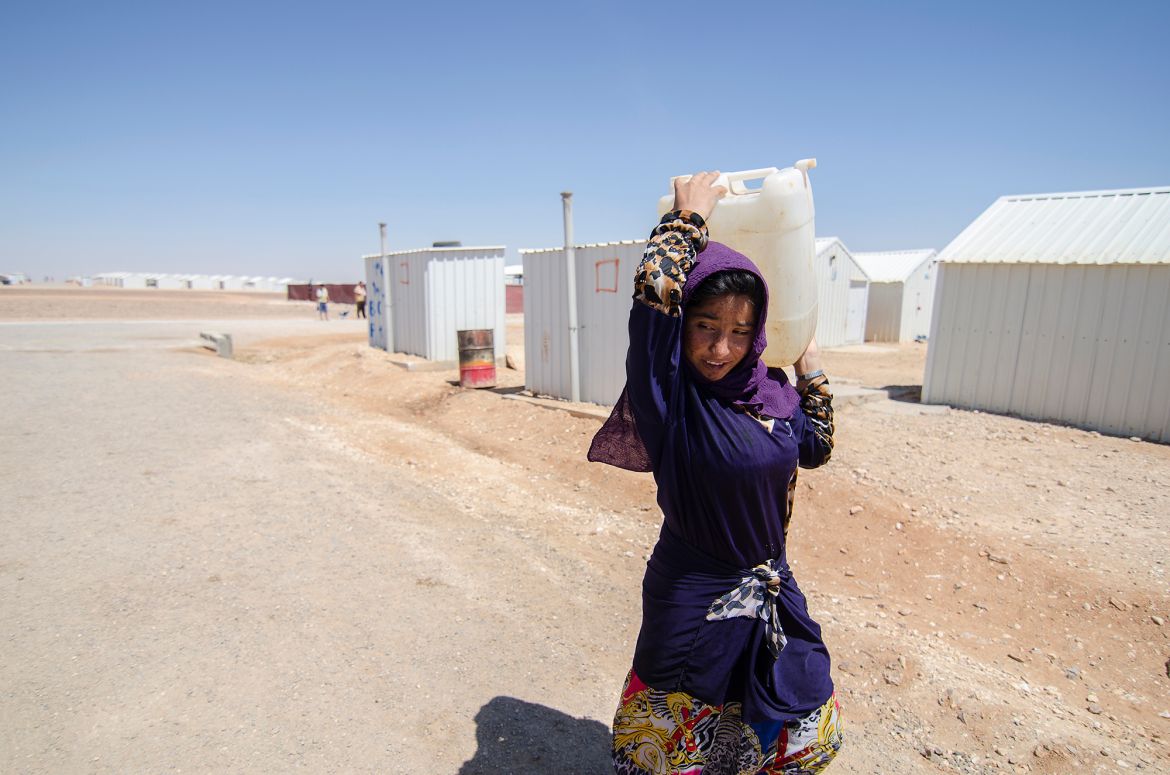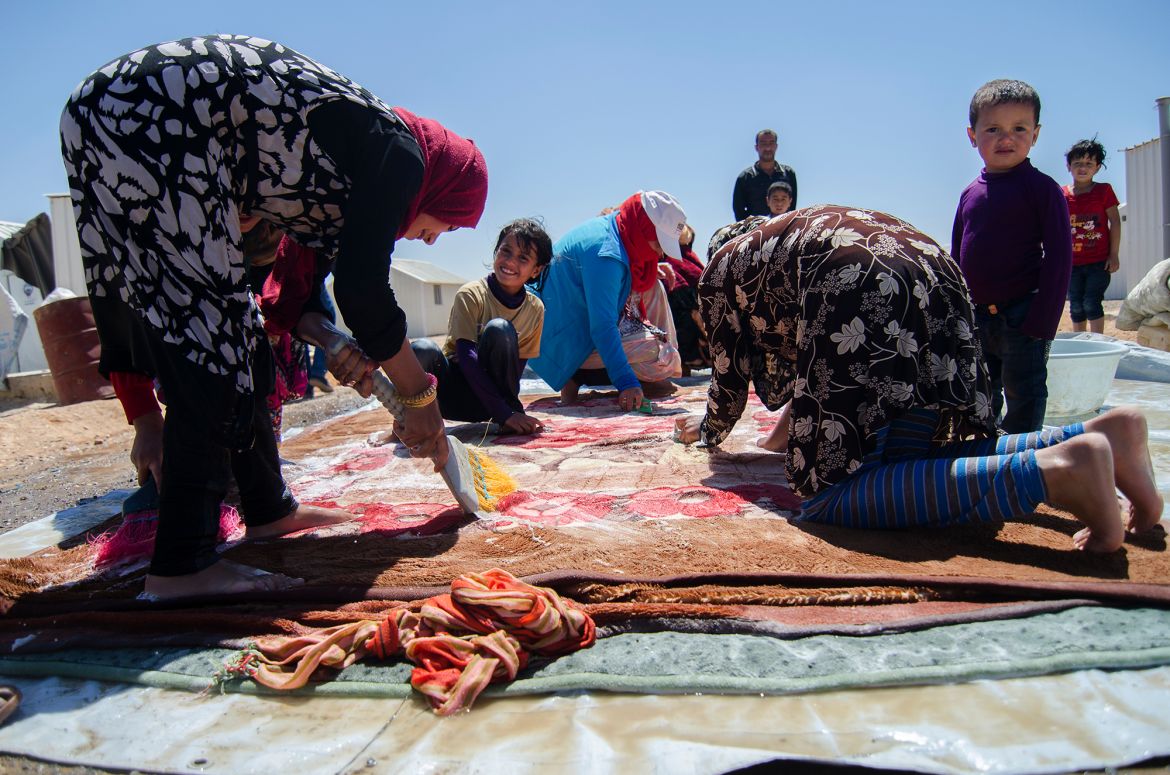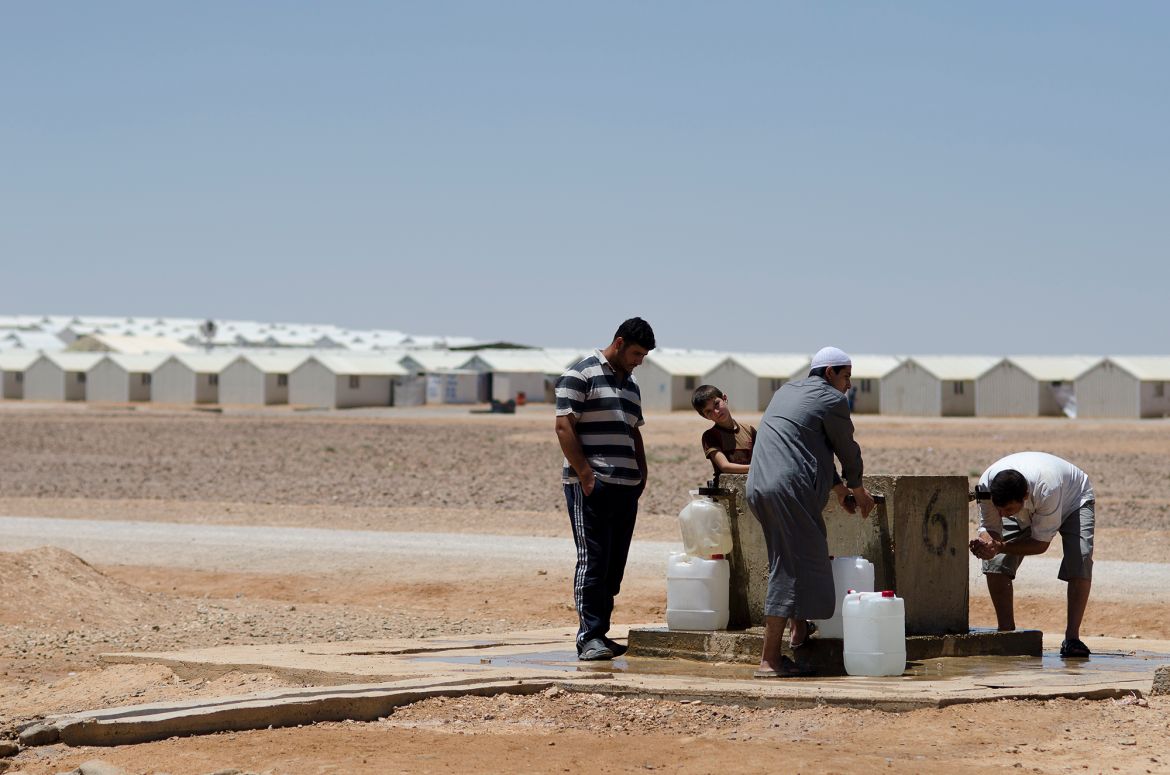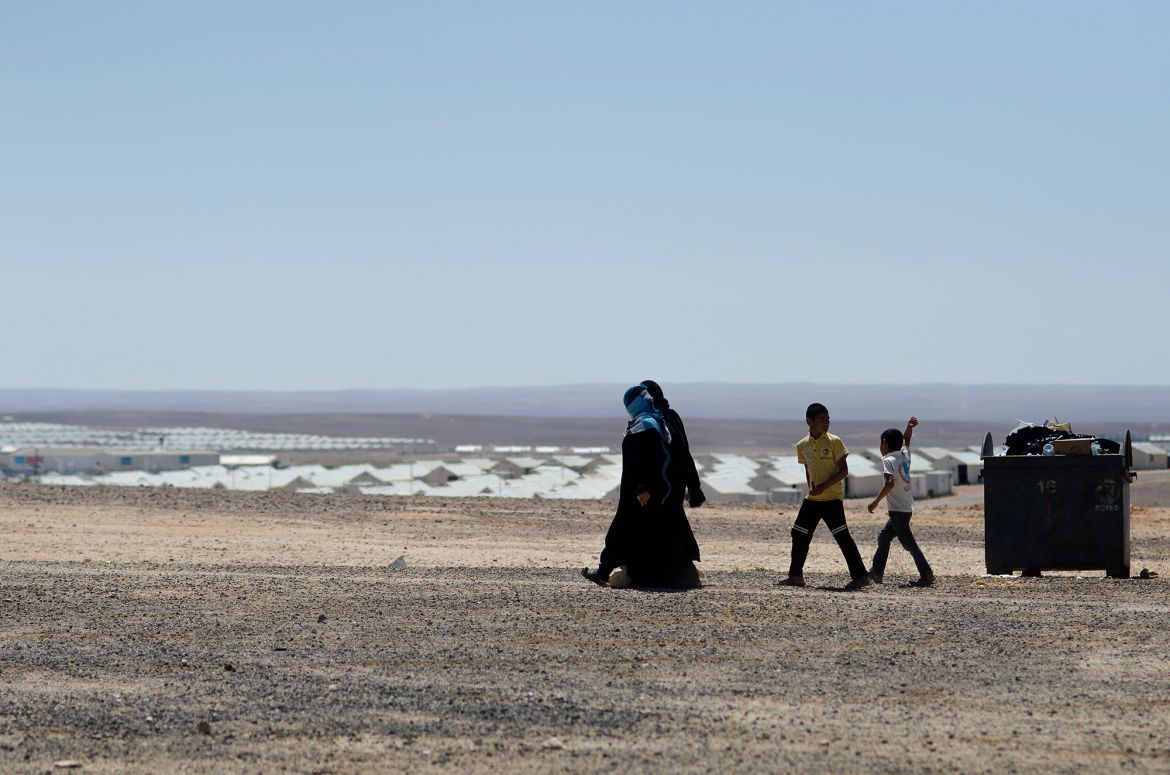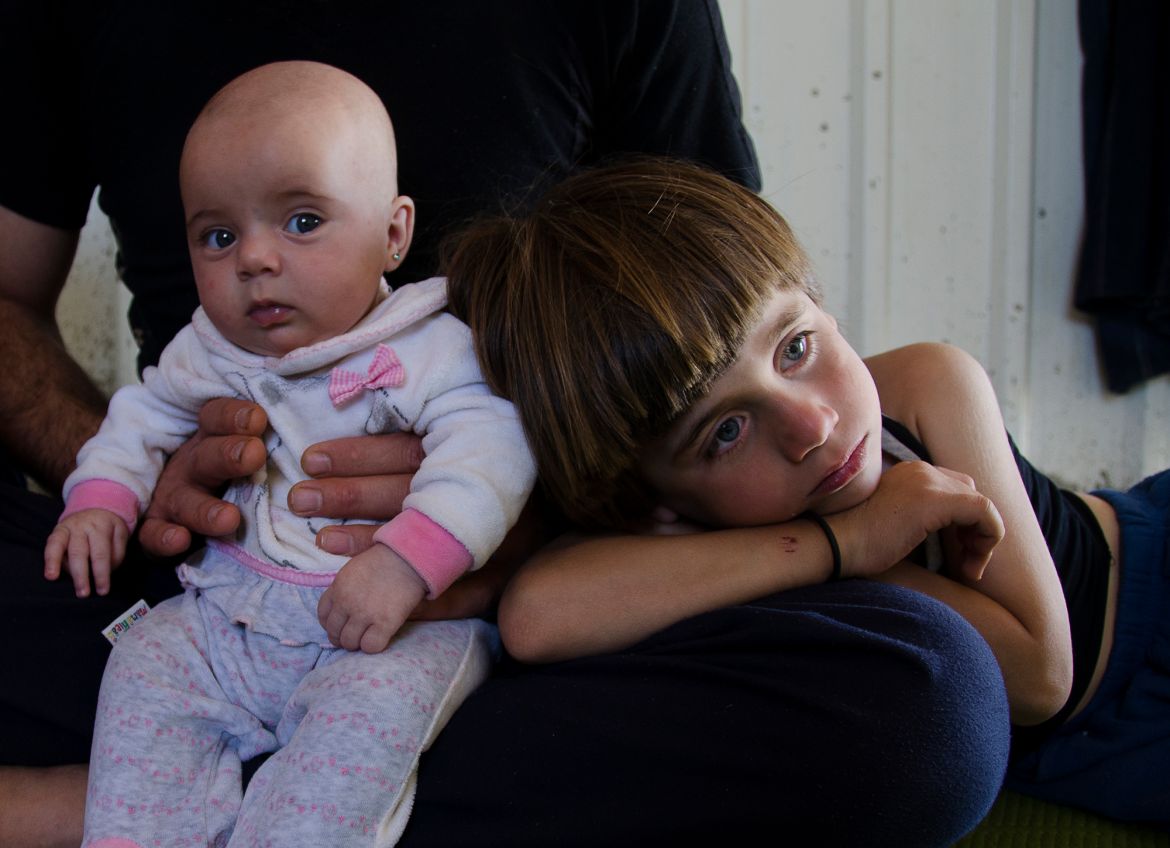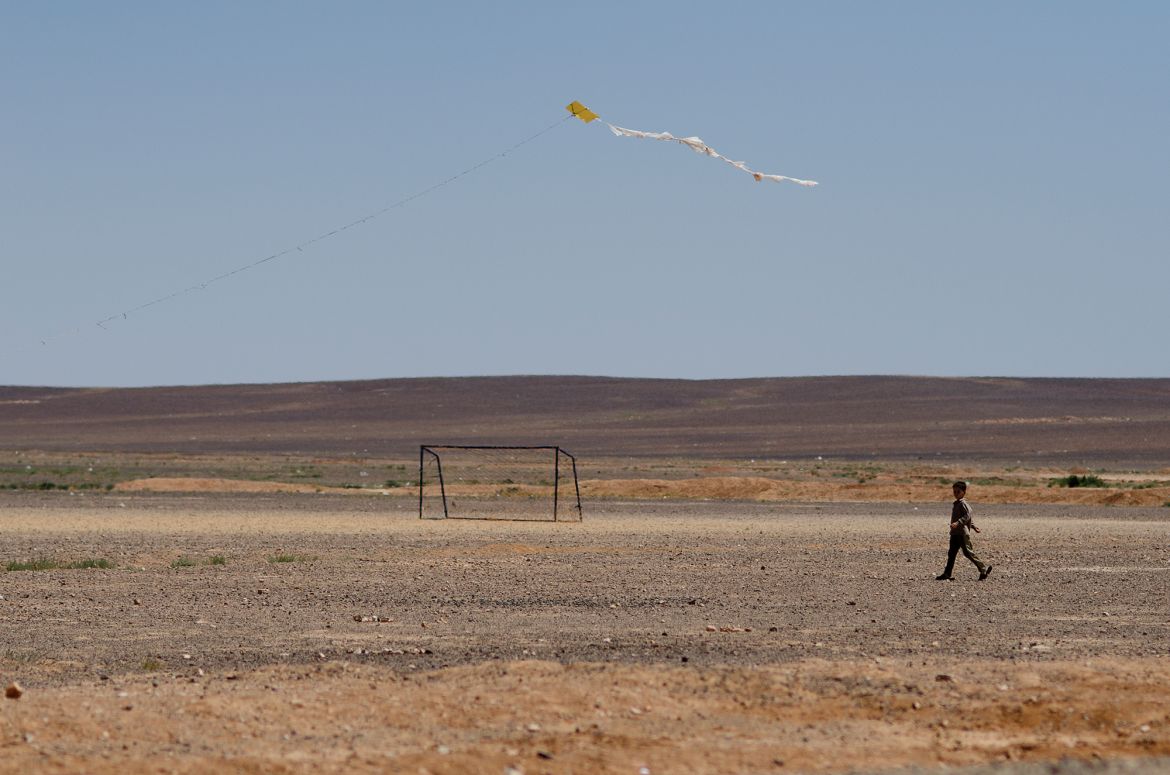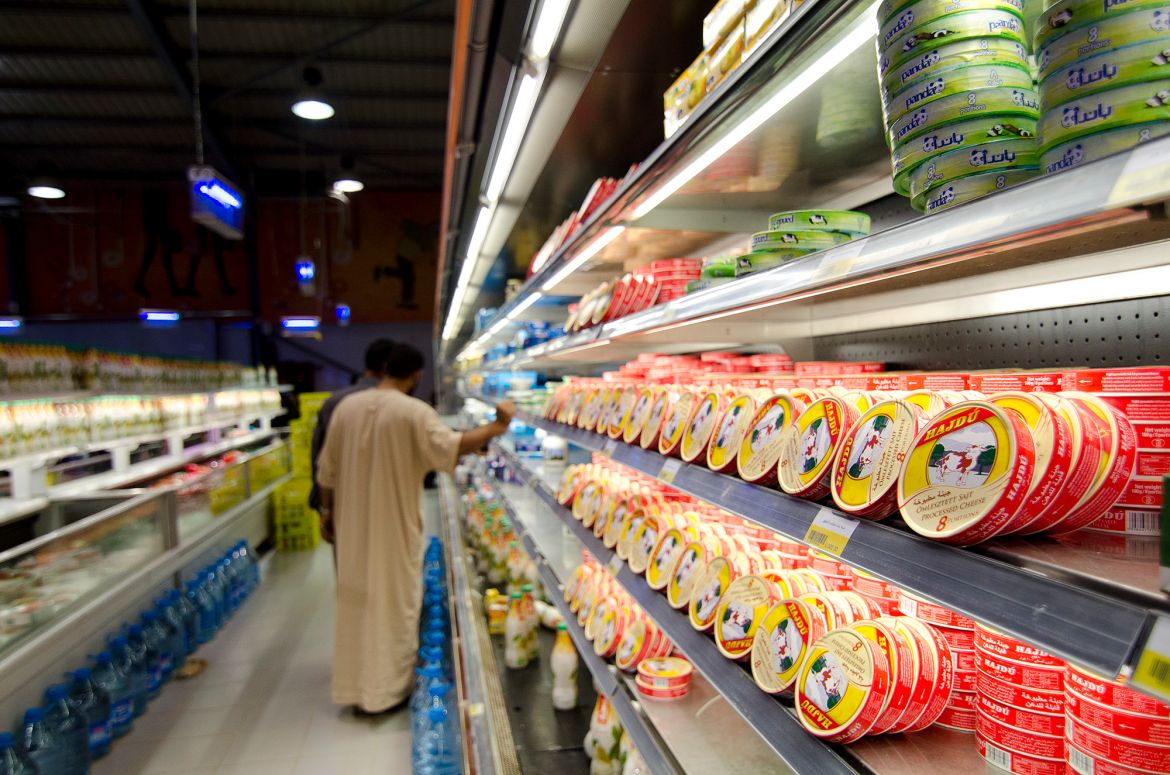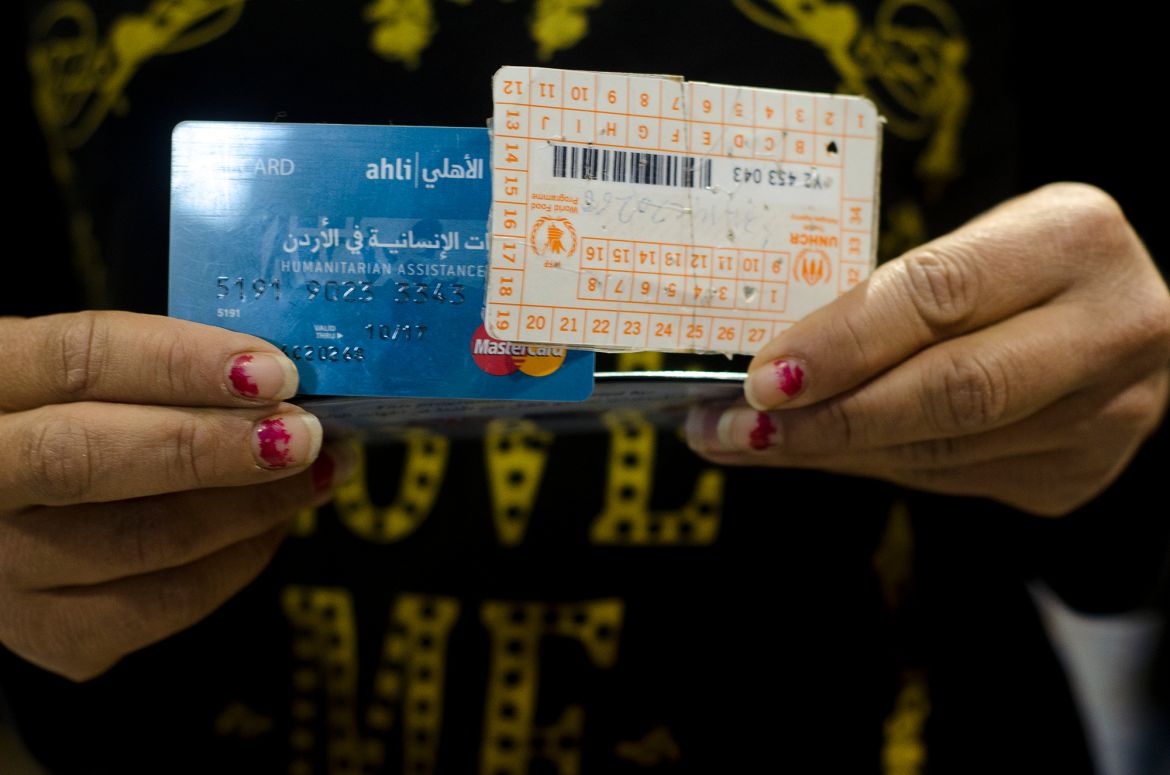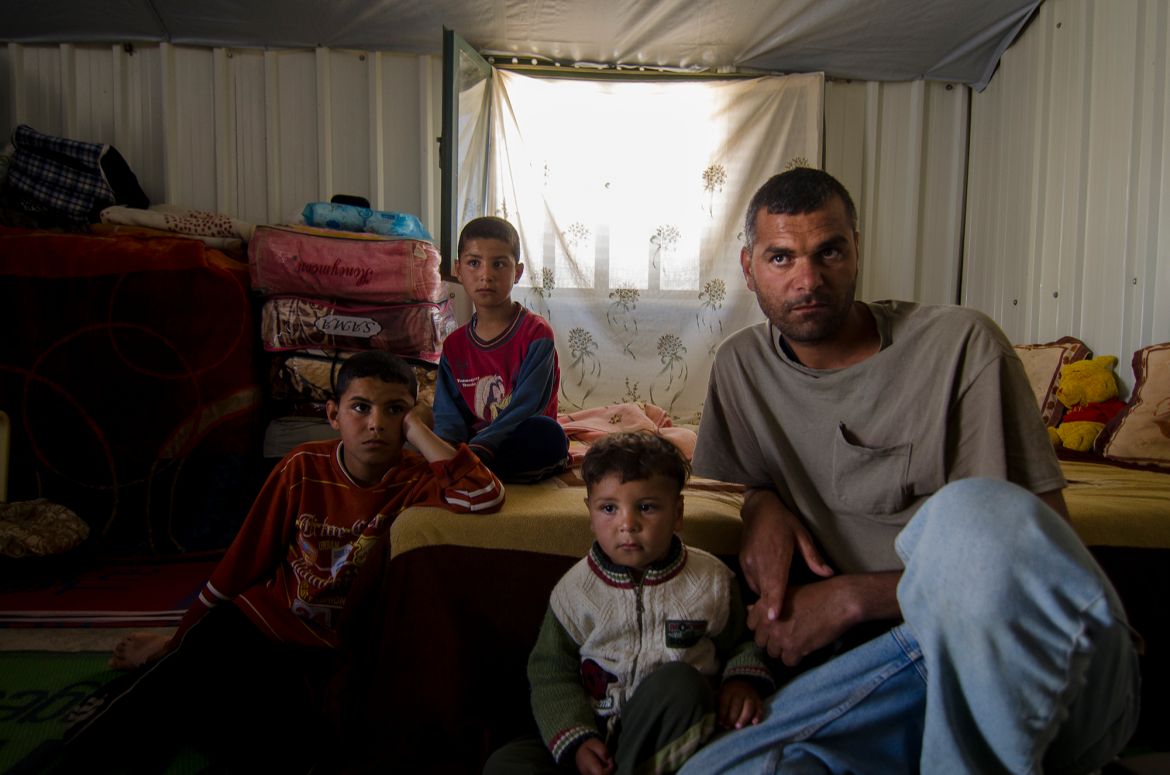In Pictures
Jordan’s Azraq Syrian refugee camp stands largely empty
Scalding temperatures, a lack of electricity and soaring food prices have created harsh conditions in the desert camp.

Along a 15km stretch of rocky desert in northern Jordan, in what used to be a camp for displaced Iraqis and Kuwaitis during the first Gulf War, rows of white metal shelters now make up the Azraq camp for Syrian refugees.
Azraq opened in April 2014 with the capacity to house up to 130,000 refugees. Back then, the Jordanian government and the United Nations said it would likely become one of the world’s most populous refugee camps – but one year on, it is nearly empty, with a population of around 18,500. Residents say scalding summer temperatures, a lack of electricity and soaring food prices have created harsh conditions inside the desert camp.
Despite major funding rollbacks by international aid agencies, most of Jordan’s 1.4 million Syrian refugees, 630,000 of whom are registered with the UN’s refugee agency, are taking their chances in urban areas rather than refugee camps.
Ahmad, who did not provide a last name for fear of reprisals back in Syria, lives in Azraq with his wife and nine children after fleeing Homs when their home was shelled in 2013. After moving between the Jordanian city of Mafraq and the Zaatari refugee camp, they ended up in Azraq earlier this year.
While Ahmad said services were better in Azraq, he shrugged when asked about quality of life inside the largely empty camp. “Look around you,” he said. “Does it look okay?”

